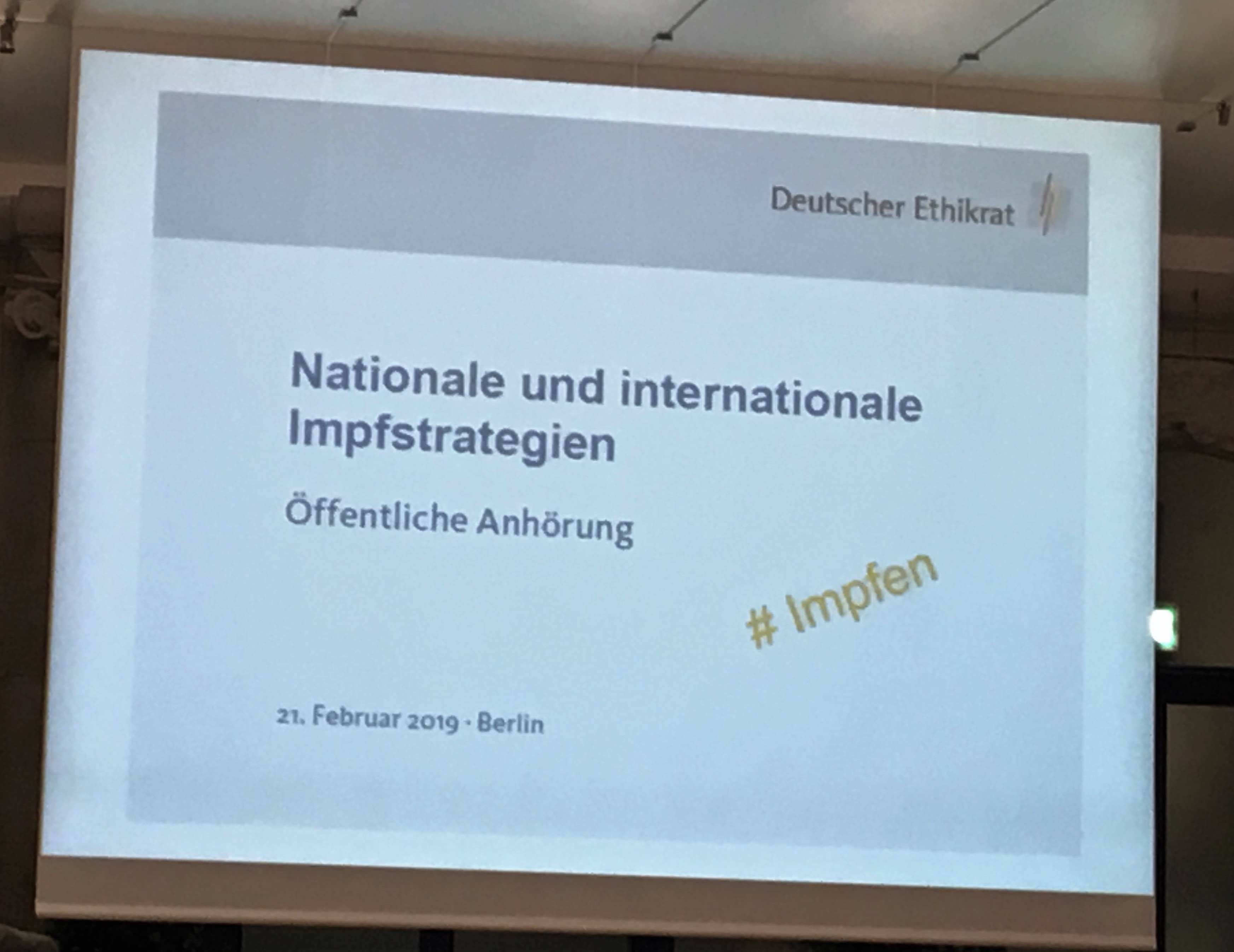
German Ethics Council: National and international vaccination strategies
Germany received global attention after increasing rates of measles, one of the most contagious diseases effectively preventable by two doses of vaccine. As part of the current debate around mandatory vaccination in the country, the German Ethics Council invited three experts – Ole Wichmann (Robert Koch Institute), Claude Muller (Luxembourg Institute of Health) and Katharina Paul (University of Vienna). After their presentations, the speakers were invited to answer questions from the Ethics Council members. Alternatives to the introduction of mandatory vaccination in Germany were discussed, whereas the debate reflects addressing the vaccine hesitancy defined by the WHO.
Vaccine sceptics were found to have diverse reasons, ranging from religious and philosophical beliefs to personal autonomy. While most vaccines are given by physicians in their own office practices and health professionals are the most trusted source of information in public health, many sceptics still prevail amongst them. Above (and beyond) biased information in the media, a mistrust concerning study quality and independence seems to exist between information providers at policy level and information recipients.
Suggested solutions were narrowing the vaccination gap in young adults, with most measles cases occurring in four German federal states and more than half of those affected over 15 years old. The medical community was recognised as another target to reach. Moreover, necessary steps were needed to overcome the reimbursement deficit for medical specialists who might want to vaccinate outside their own speciality. Reaching parents by paediatricians or spouses by gynaecologists, for example. Further measures for higher vaccination acceptance included the introduction of a vaccine registry and nudges. Due to the complexity of behavioural change, a more social science-based participation was needed.
Questions were raised about the current role of the Federal Joint Committee (G-BA) and the highest state health authorities on the vaccination recommendations by the Standing Committee on Vaccination (STIKO), and whether there should be a potential cost-benefit assessment by the German Institute for Quality and Efficiency in Health Care (IQWiG). This latter discussion reminds of the recent controversy on the impact of G-BA resolutions under AMNOG on the daily life of physicians; a policy step that led to the definition of key features of the physician information system by the Federal Ministry of Health.
